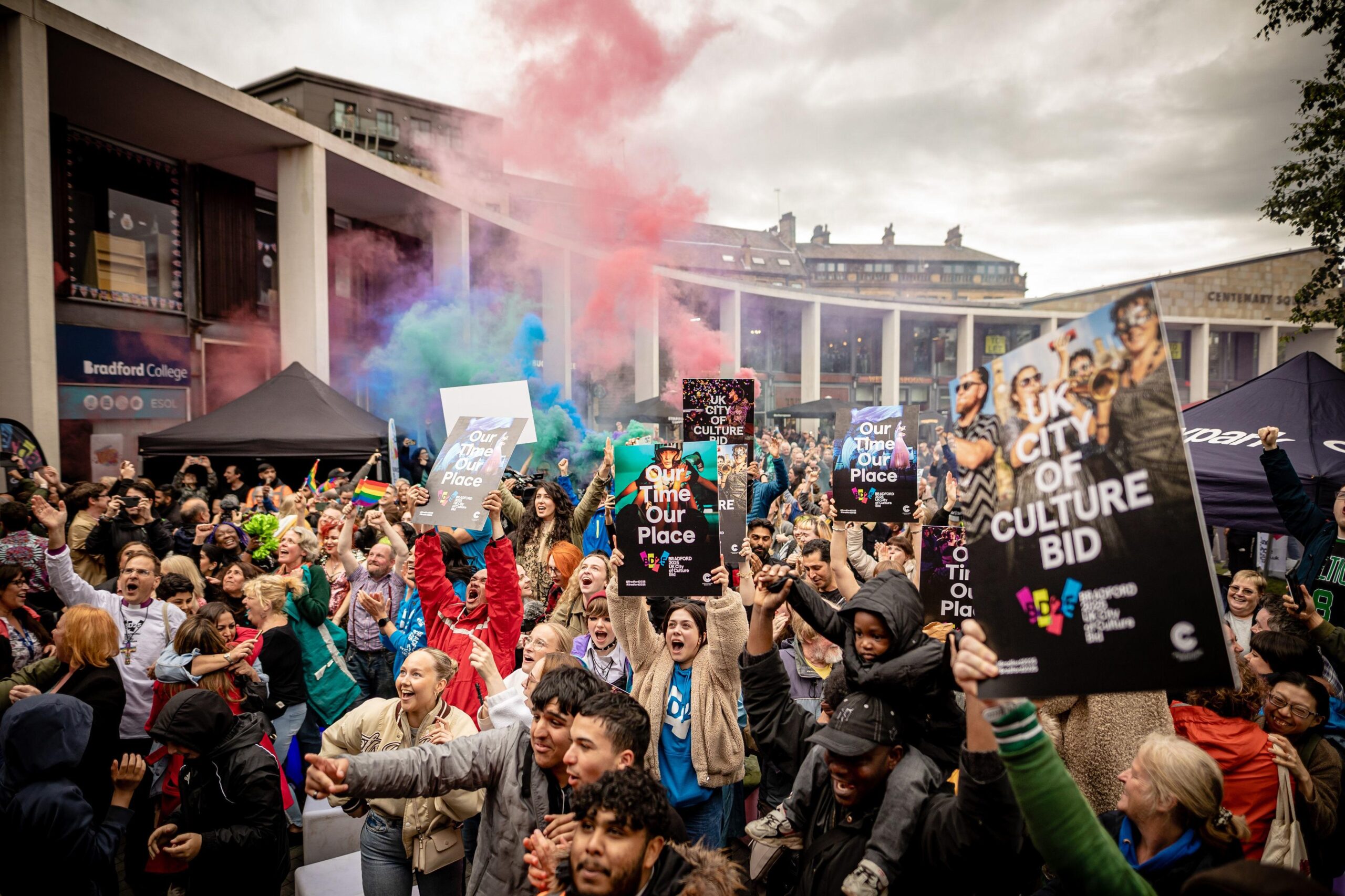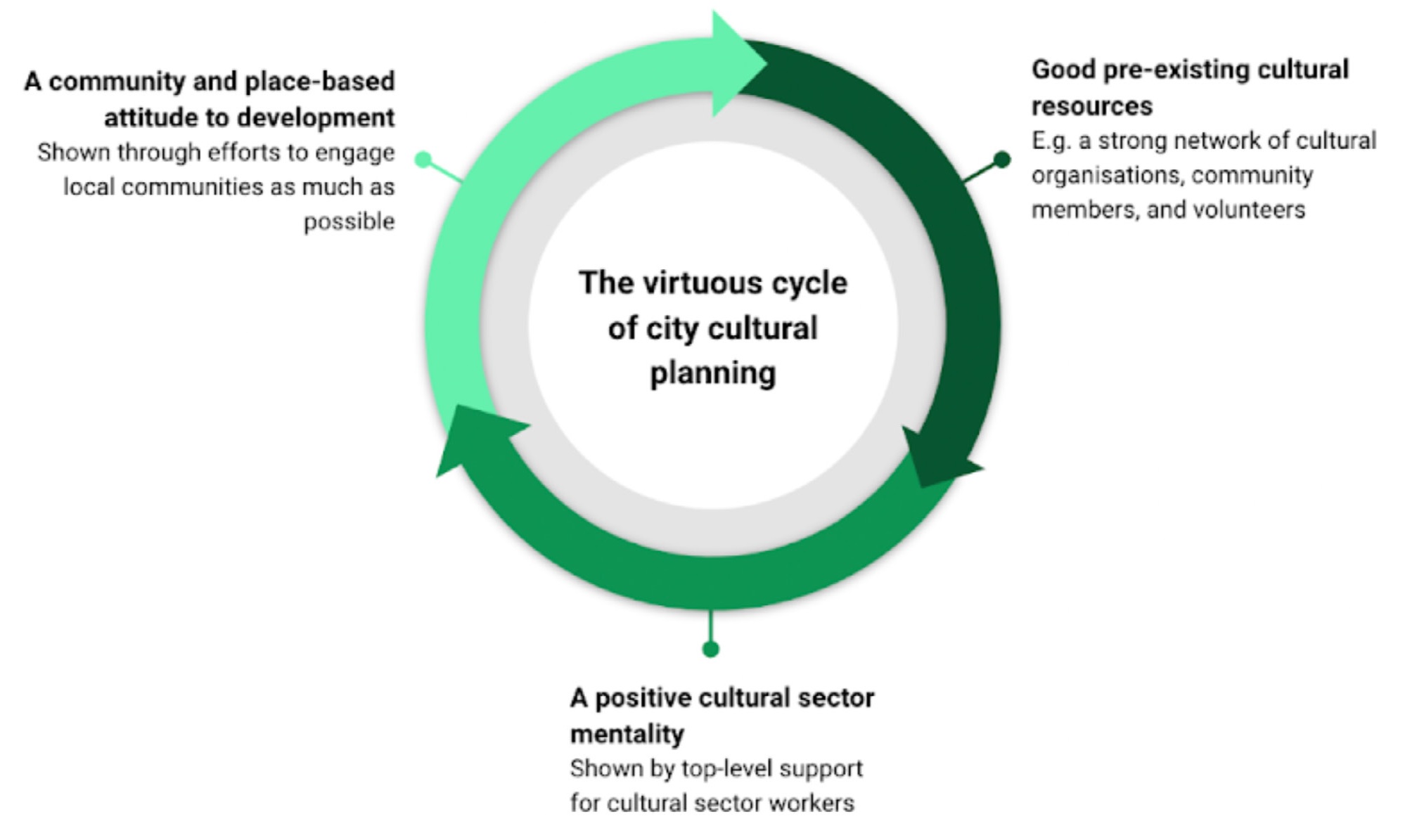
Volunteering Cities
Emerging insights from an ongoing evaluation by Neighbourly Lab of the Volunteering Cities fund.


The Volunteering Cities fund comprises four grants totalling nearly £1million to enable four locations to strengthen their local volunteering infrastructure, building on the momentum from their UK City of Culture 2025 bid.
Spirit of 2012 commissioned Neighbourly Lab to conduct an evaluation of the Volunteering Cities programme, with the aim of understanding how the momentum of the bid process can be a platform to designing sustainable volunteer programmes, and a catalyst for social connectedness and partnership working.
The evaluation is taking place alongside delivery of the projects, and includes a mixture of desk-based, ethnographic, qualitative and quantitative research. The evaluation will result in three published reports: a review from desk research at the beginning of the project, an interim report of findings, and a final evaluation report that presents findings and recommendations.
The first of these outputs has been published, and is linked below. This report is the result of desk research into the conditions for success in supporting second-place City of Culture bidding cities’ volunteering infrastructure.
Insights from report 1: Funding to support second-place City of Culture bidding cities’ volunteering infrastructure: What are the conditions for success?
The purpose of this research is to identify some of the conditions that help places that bid for UK City of Culture to make a ‘success’ of that bid – regardless of whether they achieve the designation. We are specifically interested in how places can build on the application process to improve their volunteering infrastructure.
The report sometimes uses the term ‘second place’ to describe all of the places who applied, but did not receive designation – even though there is technically no second-placed applicant. The places were variously described as runners up, long-listed cities, short-listed cities or, more pejoratively ‘losers’ or ‘unsuccessful cities’. Neighbourly Lab were particularly keen to avoid the term ‘unsuccessful’ – finding that many runners-up believe their bid was successful in lots of ways.
The research draws evidence from both the UK Cities of Culture programme, established ten years ago, and the older European Capital of Culture programme. It is the result of 1) an examination of case studies from designate cities, such as Galway 2020 and Liverpool 2008 (both European Capital of Culture), and “second place” cities, such as Newcastle-Gateshead who lost out to Liverpool in 2008; and 2) insights from deep-dive conversations with Spirit of 2012 Volunteering Cities fund grantees and a grantee workshop facilitated by Neighbourly Lab in November 2022.
The report aims to identify the conditions for successful funding impact and provide insights into what makes a successful City of Culture bid and what constitutes good volunteer infrastructure, and presents recommendations for bidding cities and funders to maximise their impact.
The report introduces the concept of a “virtuous cycle of cultural planning”, consisting of a community and place-based attitude to development, good pre-existing cultural resources, and a positive cultural sector mentality.

